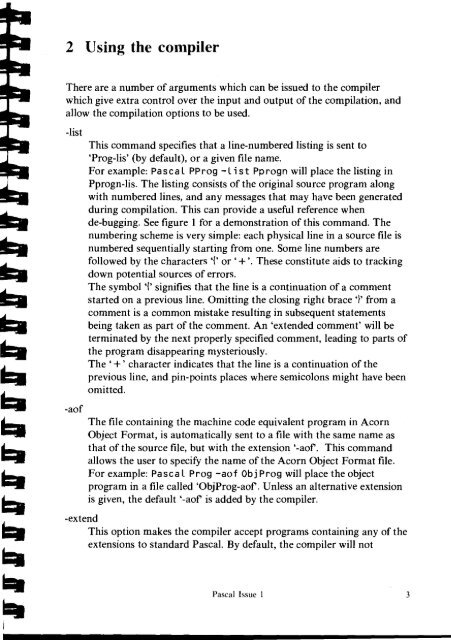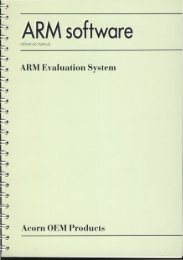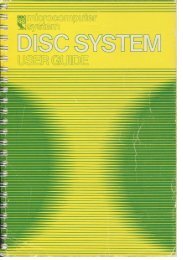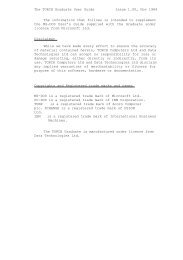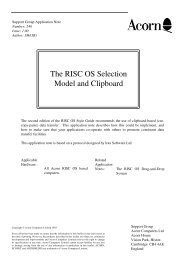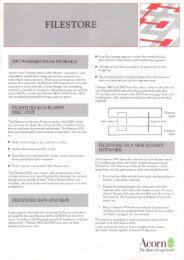ISO Pascal reference manual
ISO Pascal reference manual
ISO Pascal reference manual
You also want an ePaper? Increase the reach of your titles
YUMPU automatically turns print PDFs into web optimized ePapers that Google loves.
2 Using the compiler<br />
There are a number of arguments which can be issued to the compiler<br />
which give extra control over the input and output of the compilation, and<br />
allow the compilation options to be used.<br />
-list<br />
-aof<br />
This command specifies that a line-numbered listing is sent to<br />
Prog-lis' (by default), or a given file name.<br />
For example: <strong>Pascal</strong> PP rog -list Pp rogn will place the listing in<br />
Pprogn-lis. The listing consists of the original source program along<br />
with numbered lines, and any messages that may have been generated<br />
during compilation. This can provide a useful <strong>reference</strong> when<br />
de-bugging. See figure 1 for a demonstration of this command. The<br />
numbering scheme is very simple: each physical line in a source file is<br />
numbered sequentially starting from one. Some line numbers are<br />
followed by the characters `{' or + '. These constitute aids to tracking<br />
down potential sources of errors.<br />
The symbol `{' signifies that the line is a continuation of a comment<br />
started on a previous line. Omitting the closing right brace 'I' from a<br />
comment is a common mistake resulting in subsequent statements<br />
being taken as part of the comment. An 'extended comment' will be<br />
terminated by the next properly specified comment, leading to parts of<br />
the program disappearing mysteriously.<br />
The + ' character indicates that the line is a continuation of the<br />
previous line, and pin-points places where semicolons might have been<br />
omitted.<br />
The file containing the machine code equivalent program in Acorn<br />
Object Format, is automatically sent to a file with the same name as<br />
that of the source file, but with the extension `-aof' This command<br />
allows the user to specify the name of the Acorn Object Format file.<br />
For example: <strong>Pascal</strong> Prog -aof Ob j Prog will place the object<br />
program in a file called `ObjProg-aof' Unless an alternative extension<br />
is given, the default `-aof' is added by the compiler.<br />
-extend<br />
This option makes the compiler accept programs containing any of the<br />
extensions to standard <strong>Pascal</strong>. By default, the compiler will not<br />
<strong>Pascal</strong> Issue 1 3


